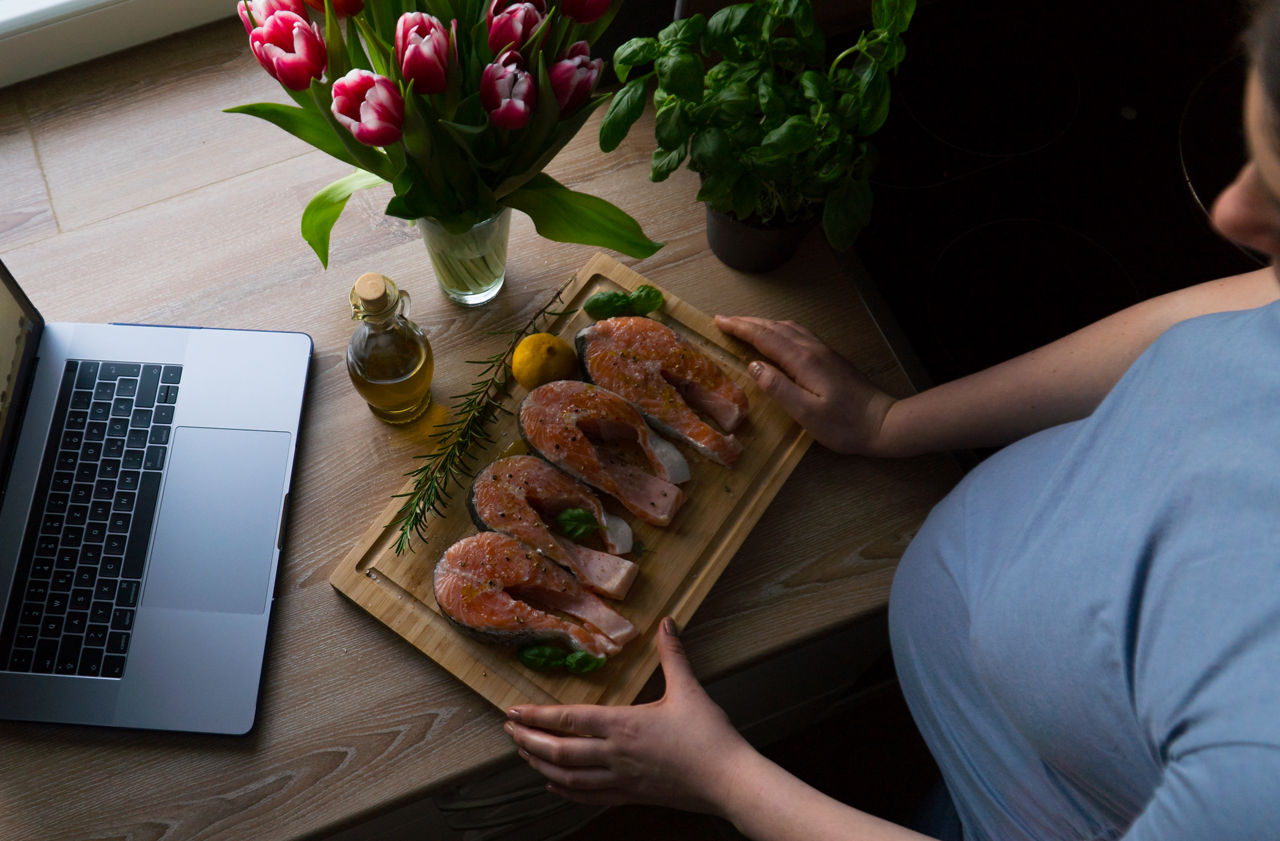Breastmilk is the best for babies. The World Health Organisation recommends exclusive breastfeeding for the first six months of life. Unnecessary introduction of bottle feeding or other food and drinks will have a negative impact on breastfeeding. After six months of age, infants should receive age-appropriate foods while breastfeeding continues for up to two years of age or beyond. Consult your doctor before deciding to use infant formula or if you have difficulty breastfeeding.
- Week 1
- Week 2
- Week 3
- Week 4
- Week 5
- Week 6
- Week 7
- Week 8
- Week 9
- Week 10
- Week 11
- Week 12
- Week 13
- Week 14
- Week 15
- Week 16
- Week 17
- Week 18
- Week 19
- Week 20
- Week 21
- Week 22
- Week 23
- Week 24
- Week 25
- Week 26
- Week 27
- Week 28
- Week 29
- Week 30
- Week 31
- Week 32
- Week 33
- Week 34
- Week 35
- Week 36
- Week 37
- Week 38
- Week 39
- Week 40
Week 32 of Your Pregnancy
You must be so big by now that it takes some effort getting comfy in bed! By week 32, most of your baby’s body systems are formed, functioning and ready for life outside the womb. Find out why Vitamin D is important for the rest of your pregnancy.
Woohoo! You’re into your 8th month of pregnancy and can’t wait to meet your tiny person. This week, your baby measures 29cm and weighs 1.8kg1. The majority of baby’s body systems are formed and functioning as well2. Whenever your baby is awake, for instance, it may explore its new ability to turn its head from side to side1 !
While your baby’s lungs have some developing to do, breathing amniotic fluid2 helps to strengthen them in preparation for their first breath of air1. By week 32, some babies will be in a head-down position (known as cephalic presentation), ready for birth. If your baby is still enjoying a head-up or transverse (horizontal) position, fret not as there’s plenty of time to turn3.
Planning for Your Maternity Leave
If you are a working mum in Singapore, you will be entitled to 16 weeks of paid maternity leave if you meet the following requirements: (MOM)
- Your child is a Singapore citizen
- You are legally married to the child’s father
- You have served your employer for at least 3 months before baby’s here
The first thing to do is to work with your employer on a maternity leave plan. The first 8 weeks must be taken in one continuous stretch. You may then stretch the last 8 weeks of leave over 12 months from bubba’s birth. (MOM) For instance, instead of taking the last 8 weeks of leave in one block, you can take Mondays and Fridays off.
In addition, if you are feeling generous, you may share up to 4 weeks of your 16 weeks of maternity leave with your husband! (MOM) Your husband may also entitled up to 2 weeks of paternity leave. (MOM)
Vitamin D: A Key Ingredient for Future Bone Health
Vitamin D is known as the sunshine vitamin because it is produced in our skin whenever we are in the sun! (Healthline) Vitamin D is crucial in your third trimester as it regulates the levels of calcium and phosphorus in the body – these are essential for bone development4,5. Besides protecting and helping baby build its bones, the Vitamin D you consume now will also support your baby in its first few months after birth.
Unfortunately, a lack of Vitamin D can cause a baby’s bones to soften, which can lead to a condition known as rickets6.
What Should I Do?
It can be hard to get enough Vitamin D through sun exposure alone. Chew on to these Vitamin D-rich foods to increase your intake7!
- Oily fish, including herring, mackerel, sardines, salmon or trout (limit to 2 portions per week as oily fish can contain toxins which can be harmful to your developing baby).
- Eggs — the yolk contains vitamin D
- Fortified foods — some brands of milk, and breakfast cereals, margarines and low-fat spreads have added vitamin D
Be sure to ask your healthcare provider to check your Vitamin D levels regularly. If necessary, take a supplement of 10mcg of Vitamin D each day. If you are planning to breastfeed your baby, continue taking this supplement even after your baby is born8!
¹ Deans A. Your New Pregnancy Bible, The experts’ guide to pregnancy and early parenthood. 4th ed. London: Carroll & Brown Publishers Limited, 2013. p. 46. 2.
² NHS UK. What is amniotic sac? [Online]. 2015. Available at: www.nhs.uk/chq/Pages/2310.aspx?CategoryID=54 [Accessed August 2016].
³ NHS UK. You and your baby at 29-32 weeks pregnant [Online]. 2015.
Available at: www.nhs.uk/Conditions/pregnancy-and-baby/pages/pregnancy-weeks-29-30-31-32.aspx [Accessed August 2016].
⁴ Commission Regulation (EC) No 1024/2009 of 29 October 2009 on the authorisation and refusal of authorisation of certain health claims made on food and referring to the reduction of disease risk and to children’s development and health. OJ L 283, 30.10.2009, pp. 22–29.
⁵ Commission Regulation (EC) No 983/2009 of 21 October 2009 on the authorisation and refusal of authorisation of certain health claims made on food and referring to the reduction of disease risk and to children’s development and health. OJ L 277, 22.10.2009, pp. 3–12
⁶ NHS UK. Vitamins, supplements and nutrition in pregnancy [Online]. 2015.
Available at: www.nhs.uk/conditions/pregnancy-and-baby/pages/vitamins-minerals-supplements-pregnant.aspx [Accessed August 2016].
⁷ Gandy J (Ed). Manual of Dietetic Practice, 5th Edition. Wiley Blackwell. UK. 2014 p.922.
⁸ Department of Health. Vitamin D – advice on supplements for at risk groups – letter from UK Chief Medical Officers [Online]. 2012.
Available at: www.gov.uk/government/publications/vitamin-d-advice-on-supplements-for-at-risk-groups [Accessed August 2016].

Connect with our team of experts
We provide advice and support for you on your parenthood journey



